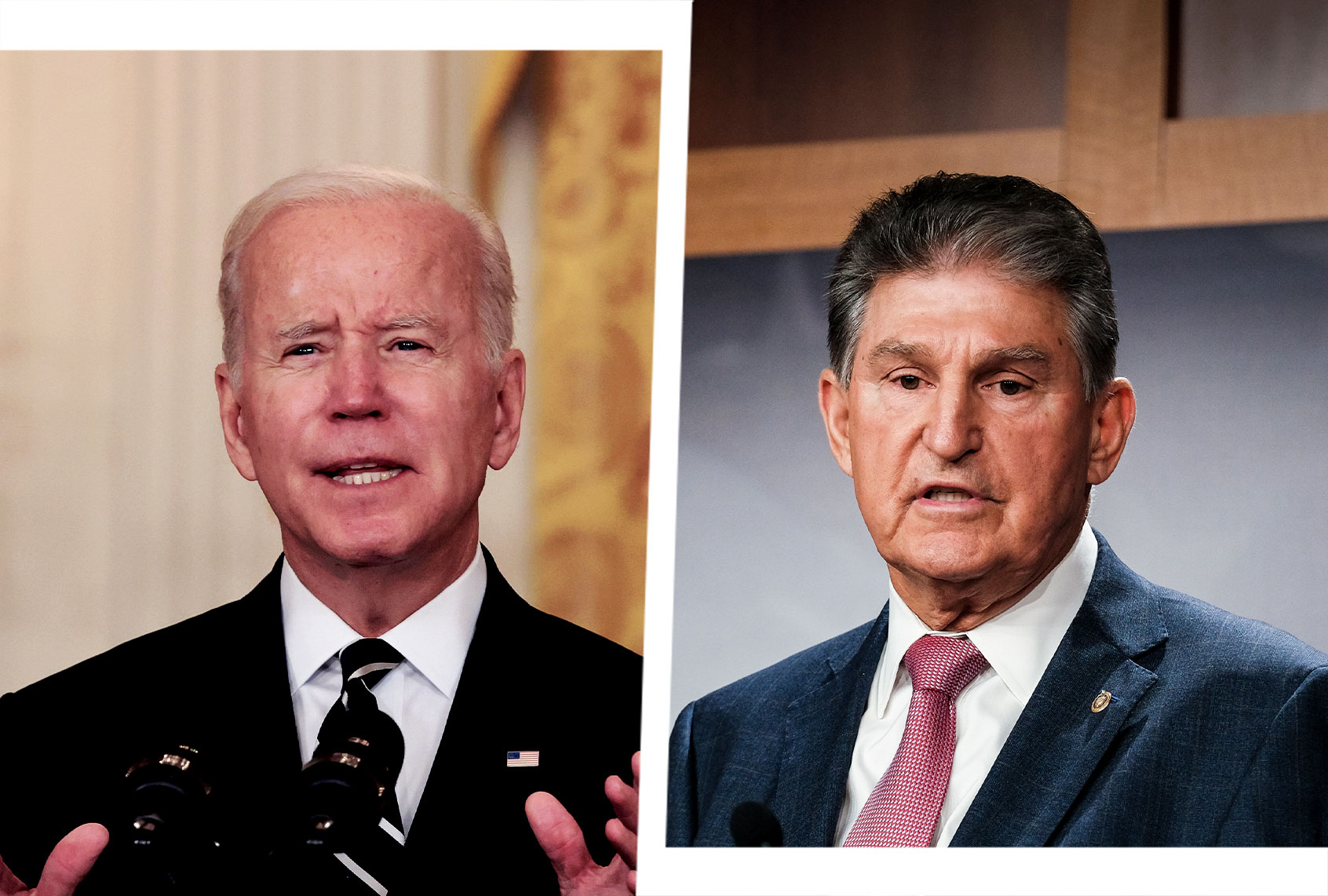Sen. Joe Manchin of West Virginia — who has, along with Sen. Kyrsten Sinema of Arizona, emerged as one of the two most prominent Democrats to hold up President Joe Biden’s legislative package — signaled on Monday that he may not be ready to back the already-watered down agenda. Despite offering hope to Biden supporters last week, Manchin now claims that he has serious doubts about the cost of the social safety net expansion bill.
During a news conference, Manchin accused his fellow Democrats of using “gimmicks” to obscure the true cost of their plan and insisted that more time was needed to study the economic effects of the $1.75 trillion social safety net expansion bill.
“As more of the real details outlined in the basic framework are released, what I see are shell games and budget gimmicks that make the real cost of this so-called $1.75 trillion dollar bill estimated to be twice as high if the programs are extended or made permanent,” Manchin told reporters. He also warned his fellow Democrats that “I’m open to supporting a final bill that helps move our country forward, but I am equally open to voting against a bill that hurts our country.”
Manchin repeatedly emphasized that, although he is not opposing the bill, he will not come out in favor of it until the text has been more thoroughly reviewed.
“Simply put, I will not support a bill that is this consequential without thoroughly understanding the impact that it will have on our national debt, our economy and most importantly all of our American people,” Manchin told the reporters. He later added, “To be clear, I will not support the reconciliation legislation without knowing how the bill would impact our debt and our economy and our country. We won’t know that until we work through the text.”
Want a daily wrap-up of all the news and commentary Salon has to offer? Subscribe to our morning newsletter, Crash Course.
If Manchin should decide against supporting the current incarnation of the social safety net plan, it would imperil Biden’s entire legislative agenda. There is a $1 trillion infrastructure bill with bipartisan support that would pass in the House of Representatives except that a group of progressives refuse to back it. They have taken this position because they are concerned that once the bill is passed, centrist Democrats will renege on their promise to work in good faith on passing the other legislation. Since Democrats control the Senate by the slimmest of margins and therefore need every Democratic senator to support their bills for them to pass, Manchin and Sinema need to agree to a social safety net package with the rest of the body. At that point, votes for both that bill and the $1.75 trillion bill can be held concurrently, which the progressive faction says is their prerequisite to supporting the infrastructure bill.
Manchin attempted to convince those progressives to agree to pass the infrastructure bill during his Monday press conference.
“For the sake of the country, I urge the House to vote and pass the bipartisan infrastructure bill — holding this bill hostage is not going to work in getting my support for the reconciliation bill,” Manchin remarked.
White House press secretary Jen Psaki seemed unconcerned about Manchin’s position.
“The plan the House is finalizing meets those tests—it is fully paid for, will reduce the deficit, and brings down costs for health care, child care, elder care, and housing,” Psaki said in a written statement. “Experts agree: Seventeen Nobel Prize-winning economists have said it will reduce inflation. As a result, we remain confident that the plan will gain Senator Manchin’s support.”
Manchin has emerged as one of the most controversial figures in the Democratic Party since Biden took office, thanks to his ability to single-handedly kill many of Biden’s progressive policy items. He cut unemployment relief in the March stimulus bill, opposed raising the minimum wage to $15 an hour, and continues to support the racist filibuster, which has historically been used by conservative to circumvent democratic procedures that would advance progressive reforms.

